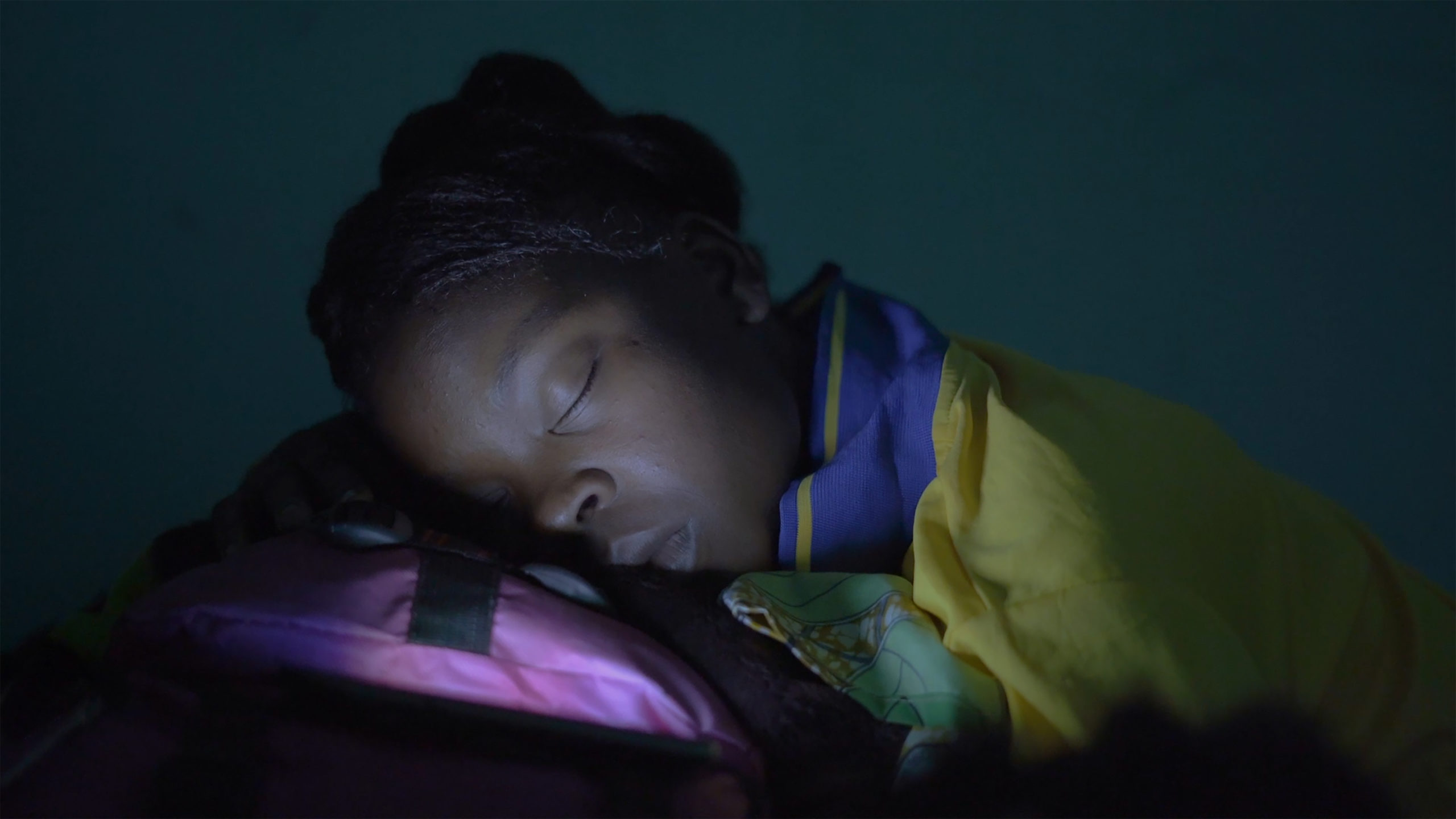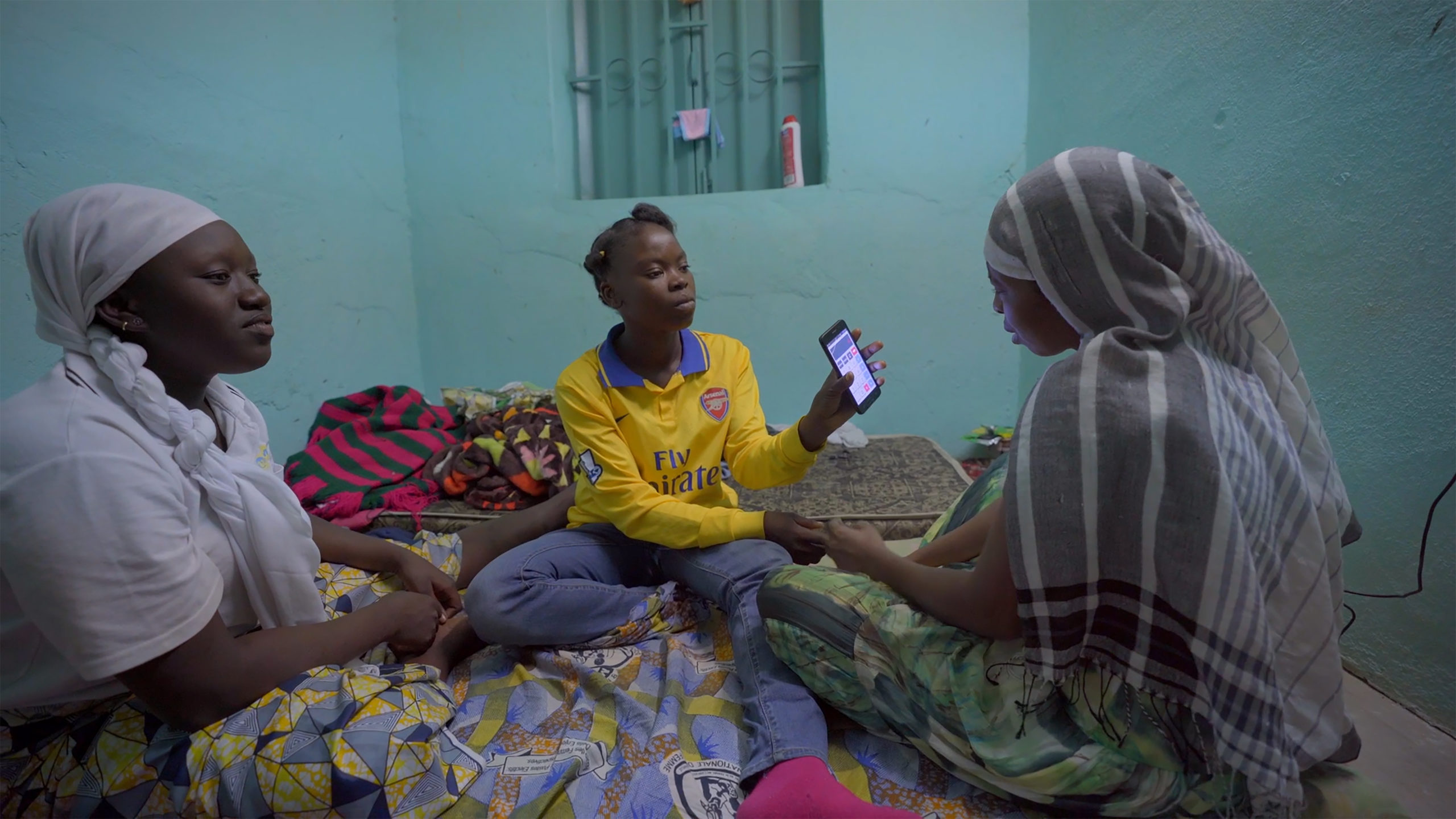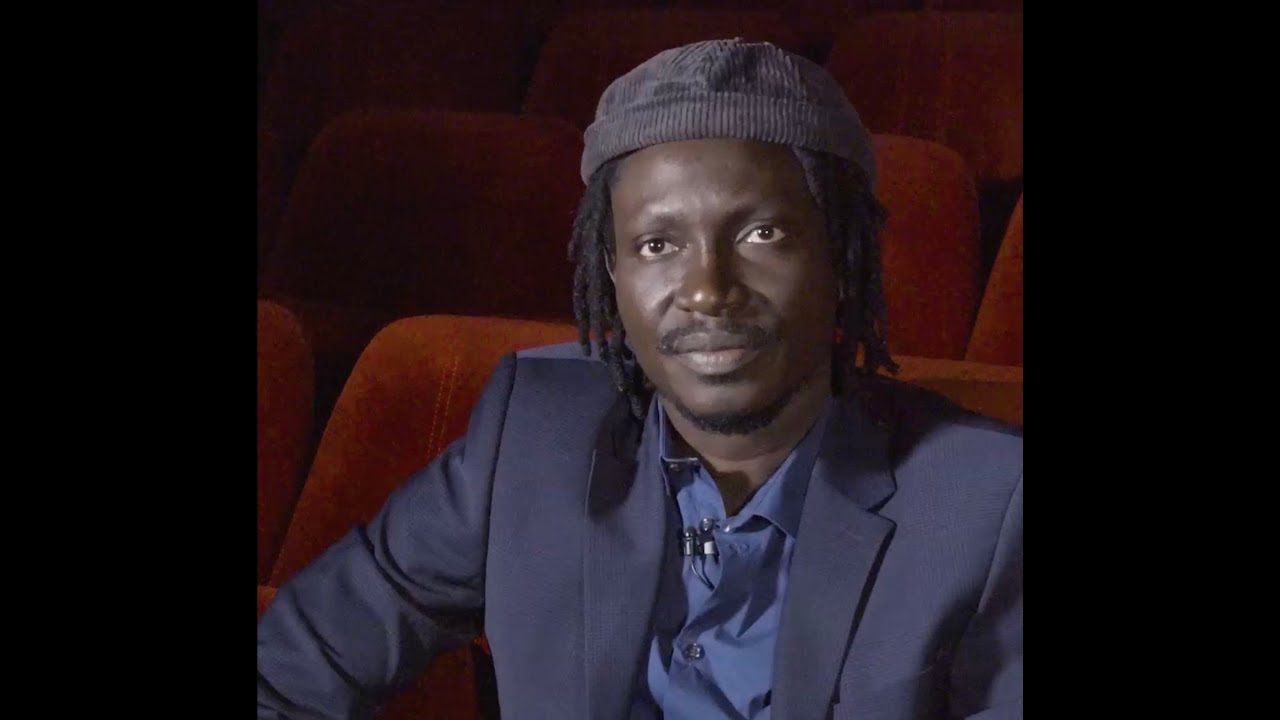We are proud to introduce Mintus, a simply ideal vessel for showing all your creative endeavors.



Das Haus der Migrant:innen in Gao, Mali, ist ein Zufluchtsort am südlichen Rand der Sahara. Er nimmt diejenigen auf, die nach Algerien gehen, und diejenigen, die zurückkehren, nachdem ihre Flucht nach Europa gescheitert ist.. Als Esther und Kady, zwei Teenager aus Burkina Faso, dort ankommen, freunden sie sich mit Natacha an, einer Migrantin in den Vierzigern, deren Erinnerung und Hoffnung auf eine Rückkehr in die Heimat im Laufe der Jahre verblasst ist. Das Trio wird zu einer Art Familie und teilt Momente der Freude, Hoffnung und Zärtlichkeit. Doch die Mädchen träumen weiterhin davon ins Ausland zu gehen, obwohl sie mit dem Scheitern und dem Trauma derjenigen konfrontiert werden, die zurückgekehrt sind.
The House of Migrants in Gao, Mali, is a refuge at the Sahara desert’s southern edge. It welcomes those going to Algeria, and those returning after failing to make it to Europe. When Esther and Kady, two teenage girls from Burkina Faso, arrive on their way, they befriend Natacha, a migrant woman in her forties whose memory and hope of returning home have faded over the years. The trio finds a semblance of family, sharing moments of joy, hope and tenderness. The girl’s dream of going abroad lives on, despite encountering the failure and trauma of those who have returned.
Nach seinem BWL-Abschluss setzte Ousmane Samassékou sein Studium am „Conservatoire des Arts et métiers Multimédia“ in Bamako fort. Anschließend erwarb er einen Master in Dokumentarfilmproduktion und Gestaltung an der Universität Gaston Berger in Saint Louis, Senegal. Ousmane ist Partner bei DS Productions in Bamako, wo er als Produzent, Regisseur, Kameramann und Cutter tätig ist. 2015 stellte er seinen ersten abendfüllenden Dokumentarfilm fertig, einen Film über die Missstände, die Bildung und Erziehung in Mali behindern: Les héritiers de la colline, produziert von Label Video (Frankreich) und DS Productions (Mali), der den Großen Preis der Jury beim Festival von Agadir und die Besondere Erwähnung der Jury bei den AMAA Awards gewann. Sein neuester abendfüllender Dokumentarfilm The Last Shelter wurde 2019 und 2020 auf dem IDFA-Forum gezeigt (rough cut). Als Co-Produzent des Films Zinder von Aïcha Macky nahm er an der Fabrique des Cinémas du Monde bei den Filmfestspielen in Cannes teil.Im Oktober 2018 gewann er mit dem Projekt Tonso das Stipendium für Produzentennetzwerke des Ouaga Producer Lab.
A graduate in business economics, Ousmane Samassékou continued his studies at the Conservatory of Multimedia Arts and Crafts in Bamako. He then obtained a master’s degree in documentary production and creation at the Gaston Berger University in Saint Louis, Senegal. Ousmane is a partner in DS Productions in Bamako, where he is a producer, director, director of photography and editor. In 2015, he completed his first feature-length documentary, film on the evils that hinder training and education in Mali: „Les héritiers de la colline“, produced by Label Vidéo (France) and DS Productions (Mali), which won the Grand Prix du Jury at the Agadir Festival and special mention of the Jury at the AMAA Awards. His latest feature-length documentary „The Last Shelter“ was presented at the IDFA Forum in 2019 and as a rough cut in 2020. As co-producer of Aïcha Macky’s film „Zinder“, he participated at „la Fabrique des Cinémas du Monde“ at the Cannes Film Festival. In October 2018, he won the producer networks grant at the Ouaga Producer Lab with the project „Tonso“.